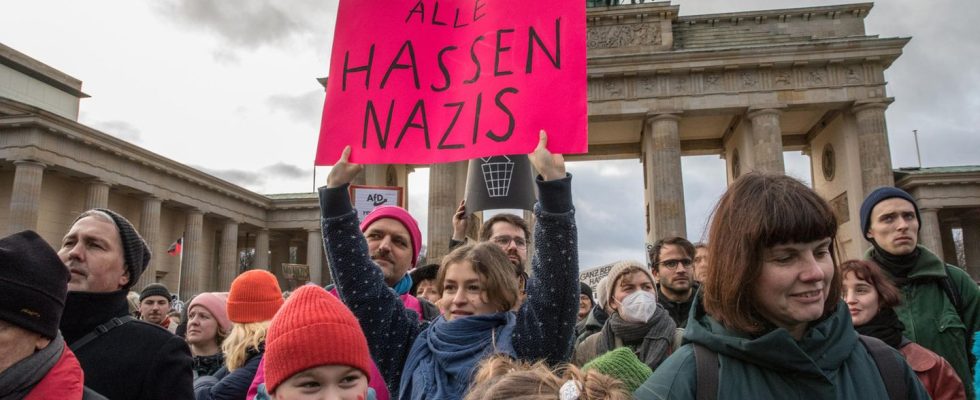After the Correctiv revelations about deportation fantasies, tens of thousands of people took to the streets. But do such rallies really make a difference? Protest researcher Alexander Leistner is quietly hopeful.
25,000 people in Berlin, 30,000 in Cologne, 8,000 in Kiel: After the revelations by the research network “Correctiv”, people took to the streets in many major German cities during the week against right-wing hatred and incitement. Large protests have also been announced in several cities for the coming weekend; more than 10,000 participants are expected in Hamburg, Hanover and Munich alone. But what are the benefits of the protests against racism, right-wing extremism and the AfD? Protest researcher Alexander Leistner from the Institute for Cultural Studies at the University of Leipzig answers the questions.
Cetin Gültekin12:05
Mr. Leistner, can you really change the minds of AfD voters with a demo or a protest?
The past few years and research show that it is difficult to impress the AfD’s core voters with protests and revelations. It could change the minds of sympathizers who see the AfD as a protest party. Overall, the protests are aimed more at a wake-up call for democratic civil society.
Who are those who are taking part in the big demonstration in Hamburg today, for example, reaching?
My assessment: The broader the demonstration alliance on site, the lower the threshold is for people without demonstration experience. For some, the demonstrations are like a wake-up call to wake up from their state of shock. For others it seems like a departure that they have been waiting for. Many people who were already committed may have had a feeling of resignation in the past few months. Above all, the broad demonstrations signal that it will not be tolerated if the foundations of democratic coexistence are attacked. Against the backdrop of the AfD’s predicted strength in the East German state elections, the threat landscape suddenly becomes clearer for many people.
What influence do the demonstrations have on the protesters themselves?
One should not underestimate how encouraging the demonstrations are perceived by participants. It reinforces the feeling that you are not alone in worrying about democracy.
How can you work against extremism if you can’t or don’t want to demonstrate?
There are also other options: An important question is how to do something where the AfD is strongest and democratic civil society is particularly weak and sometimes threatened. The strength of the AfD is not decided in Leipzig or Cologne, but in the small towns and rural regions of Eastern Germany. In the medium term, initiatives, donations and encouragement from clubs, churches and cultural institutions are needed.

